Home » Diet & Food »
Bizarre Facts You Probably Never Knew About Your Groceries
Grocery shopping is one of those tasks we do so often, we probably think we know everything about the products we buy. In fact, there are many things you probably didn’t know about the items we purchase every week — and some of those things are actually quite shocking. Here are 15 bizarre facts you probably never knew about your groceries. (Be careful reading the fact on page 12 if you have a weak stomach.)
1. Your bread is in a brown bag for a reason
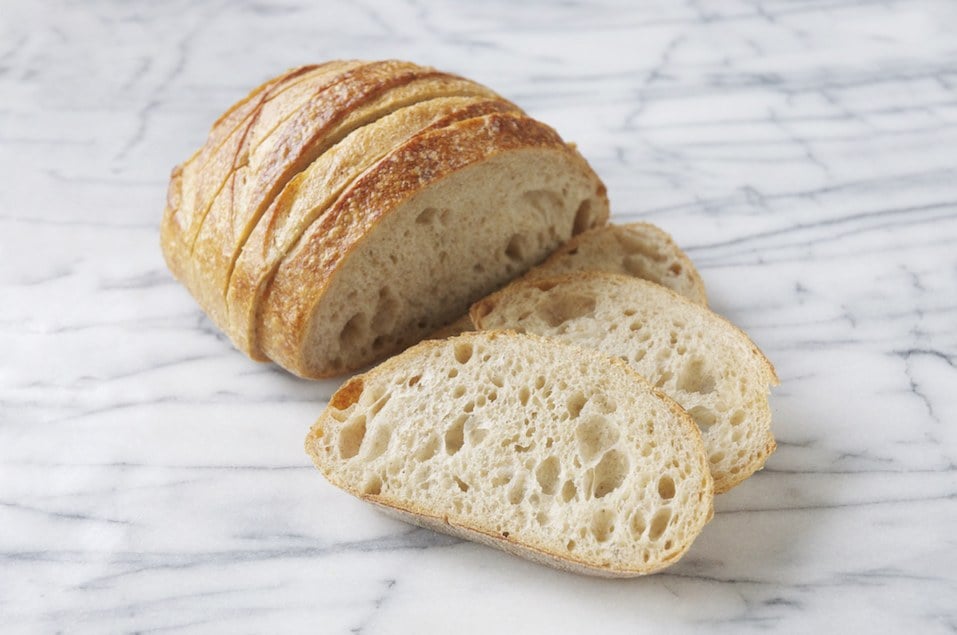
Sourdough bread | janetleerhodes/Getty Images
Those delicious sourdough baguettes aren’t packaged in those rustic-looking brown paper sleeves because it’s better for the environment than plastic. But as Reader’s Digest tells us, the packaging makes the bread go stale faster — causing you to buy it more frequently. They recommend storing whatever bread you don’t eat within a day or two in the freezer so it doesn’t go to waste.
2. Jam jars are dented to save money
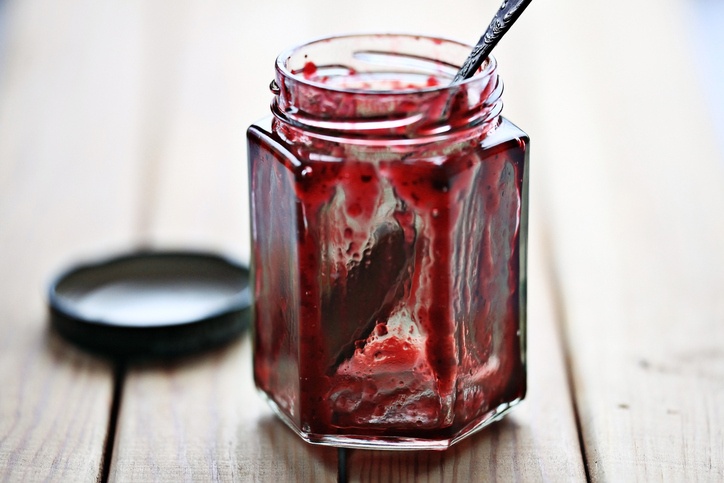
Empty jar of jam | iStock.com/Kichigin
Those indentations in your jelly jar aren’t for show. According to Scoop Whoop, the dent on the bottom of jam jars is an optical illusion to make it look like there’s more in the jar than there really is. This optical illusion “saves up to 57 grams of the content inside the bottle, thereby deceiving you to think that there is more content than there actually is.”
3. Cereal boxes are made to deceive you

Boxes of cereal | Justin Sullivan/Getty Images
Sure, all cereal boxes look like they’re holding the same amount of cereal. But keep in mind, some cereals weigh more than others. So even though all the boxes look the same — and weigh about the same, for that matter — they don’t necessarily all contain the same amount of cereal in them.
4. Fruits and veggies aren’t as fresh as you think

Produce | Justin Sullivan/Getty Images
That’s right. The Daily Meal points out that the items in the produce section have been touched by many people and aren’t as clean as you may think. “You know when you pick up a peach to see if it’s ripe, then put it back down if it isn’t?” They ask. “So did everybody else in the supermarket, and their handsy little kids. And that little spray of water doesn’t do much to keep it clean.”
5. Fruits and veggies don’t weigh as much as you think
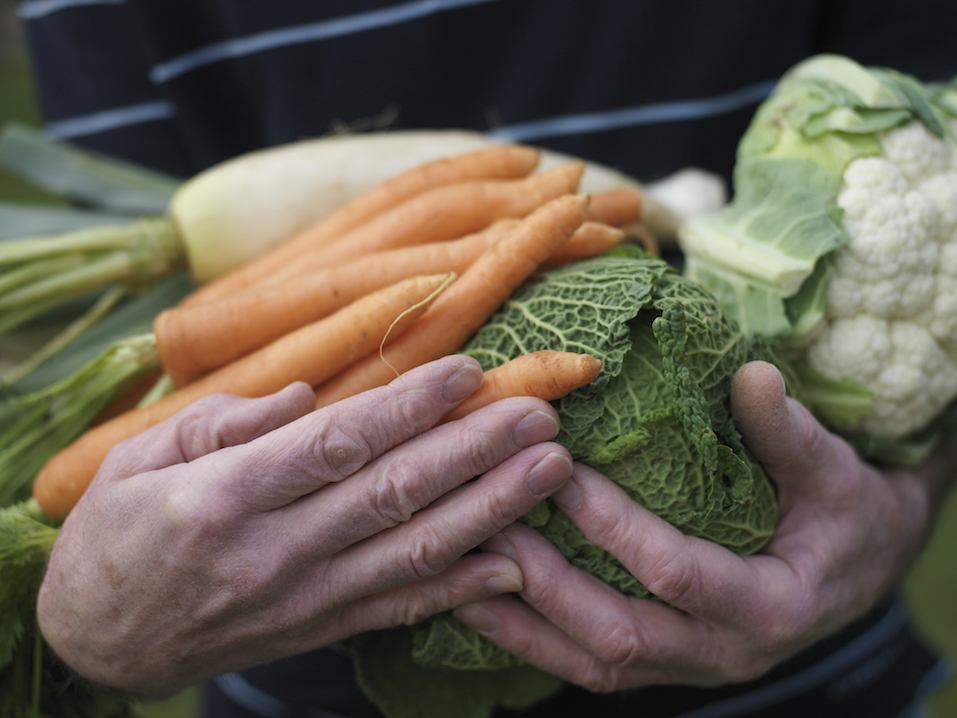
Senior man holding vegetables | RL Productions/Getty Images
So that spray of water the produce gets may not clean everything very well. But that water does add weight to your fruits and vegetables, Scoop Whoop says. Keep this in mind the next time you’re weighing your produce at the grocery store.
6. The ‘Best Before’ date is bogus

Egg with expiration date | KenTannenbaum/iStock/Getty Images
The Daily Meal tells us the scary truth behind the labeling on eggs and items at the meat counter — many of those labels are printed by the stores themselves. “This means that if an item is set to expire and it still looks okay, supermarkets are allowed to put a new label on, pushing the expiration date back by days or even more than a week.”
7. You’re buying the most expensive items because …
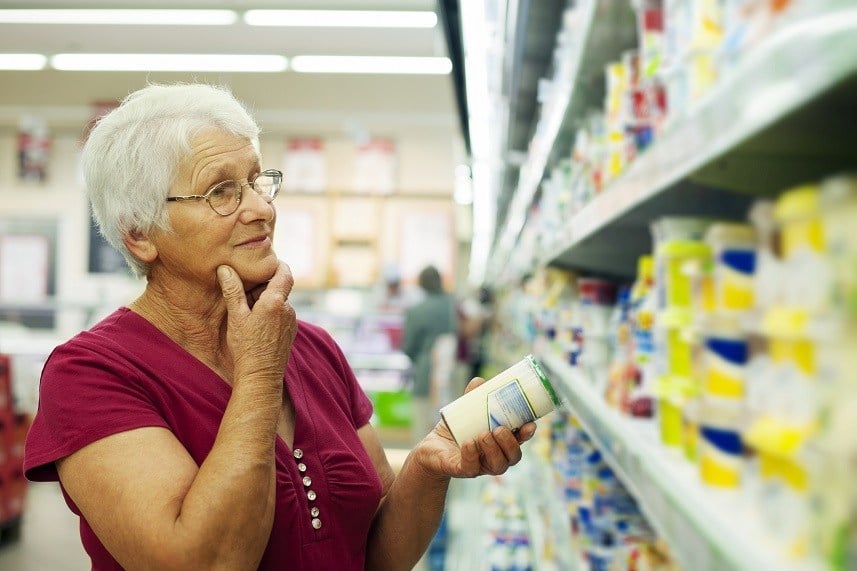
Examining items in the grocery aisle | gpointstudio/iStock/Getty Images
“You’re more likely to purchase the items you see first, so the most expensive items are usually at eye level, with the less expensive ones on the top and bottom shelves,” The Daily Meal summarizes. This method isn’t just used on adult shoppers, either. Stores purposely put child-oriented foods and games a couple shelves lower to tempt them.
8. Your teeth whitening gum only gets half the job done
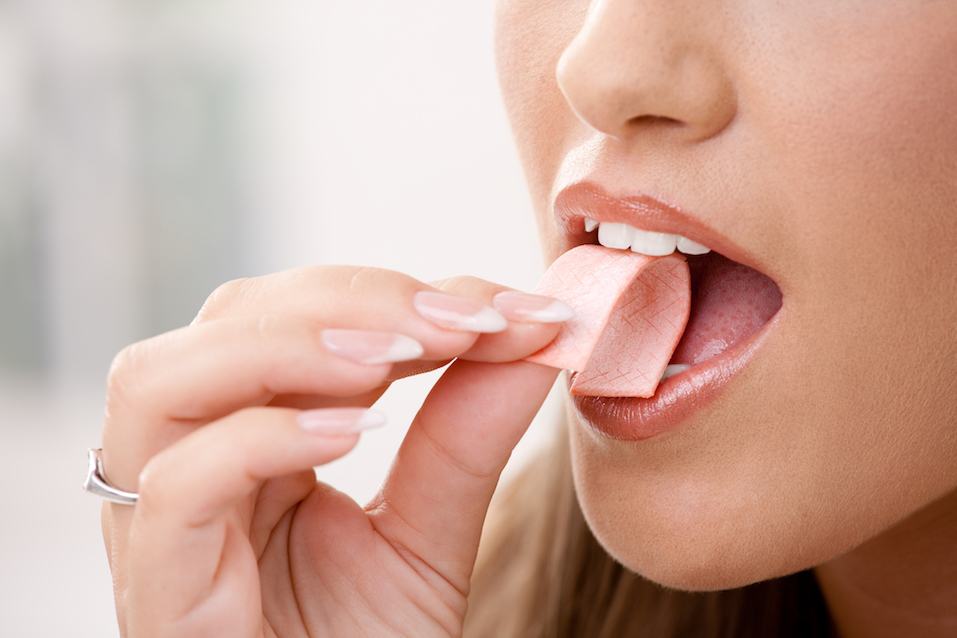
Chewing gum | Nyul/iStock/Getty Images
Scoop Whoop says whitening gum only works on your molars and doesn’t hit your front teeth hard enough. Lifehacker points out you have to chew an insane amount of whitening gum for it to have any effect at all. long story short: This is one grocery store purchase you could probably do without.
9. You probably have more groceries in your cart than you need

Grocery shop | shironosov/iStock/Getty Images
In a 2014 article, Consumerist points out shopping carts have gotten super-sized over the years — and if there’s more room to fill, you’re more likely to buy more things. (Even if those things weren’t on your original shopping list.) Additionally, stores play slow music on over the PA which encourages shoppers to buy more.
10. The items you just grabbed in the check-out line …

Check-out line | Noel Hendrickson/iStock/Getty Images
… was put there to ensure you add something extra to your already-overflowing cart before you check out. “All those shiny magazines, candies, gums, and gadgets are in the checkout line because supermarket owners know that you’ll be forced to stare at them while you wait your turn,” The Daily Meal says.
11. Your fish may be mislabeled
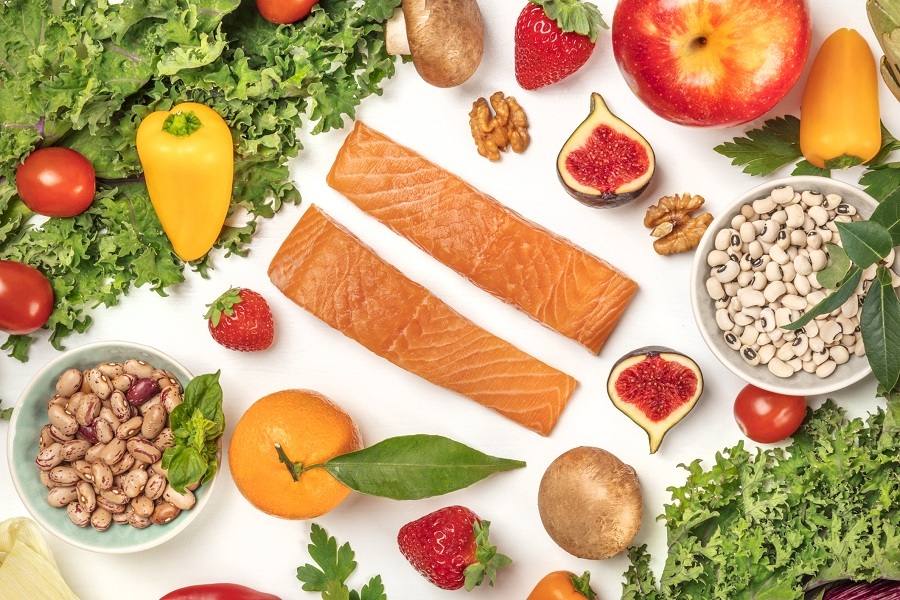
Vegetables and a fillet of fish | iStock.com/ Plateresca
The issue of mislabeled fish is a problem all over the world, Newsweek said in 2017. They explain that much of the US’s fish is imported, and that “as a catch goes from deck to dock to processing plant to refrigerated truck, it could at any point have its label switched.” The government added the Seafood Import Monitoring Program to help crack down on this problem.
12. Your food may be ‘reconditioned’
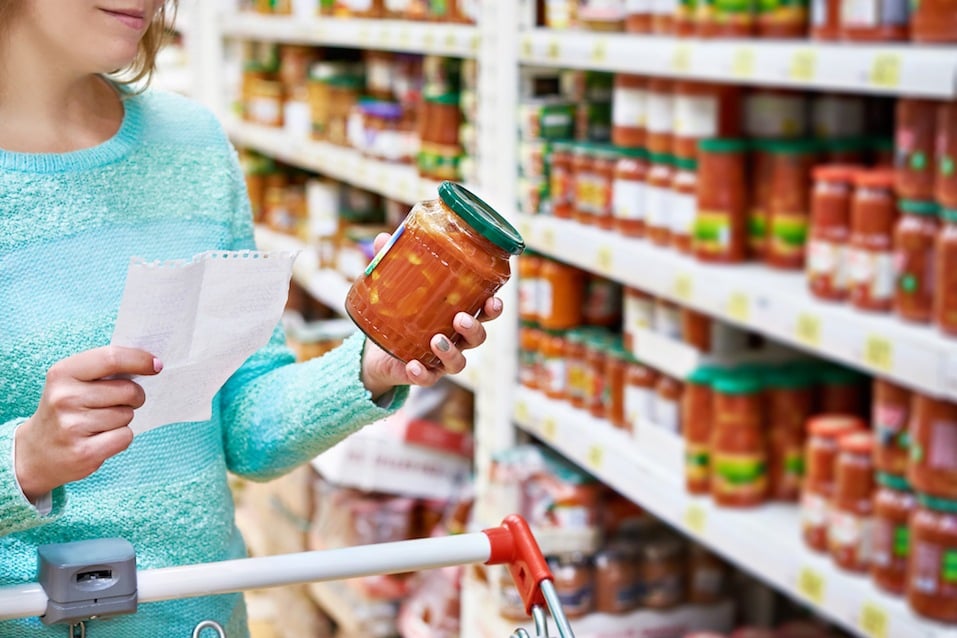
Grocery shopping | sergeyryzhov/Getty Images
“Basically, food companies need to keep their costs as low as possible, so occasionally when food is imperfect or expired, it’ll get sent back to the supplier for ‘reconditioning,’” The Daily Meal says. To make matters worse, turning contaminated or expired food into something seemingly edible to make a profit is a practice most manufacturers take part in.
13. Your coupons may not even work
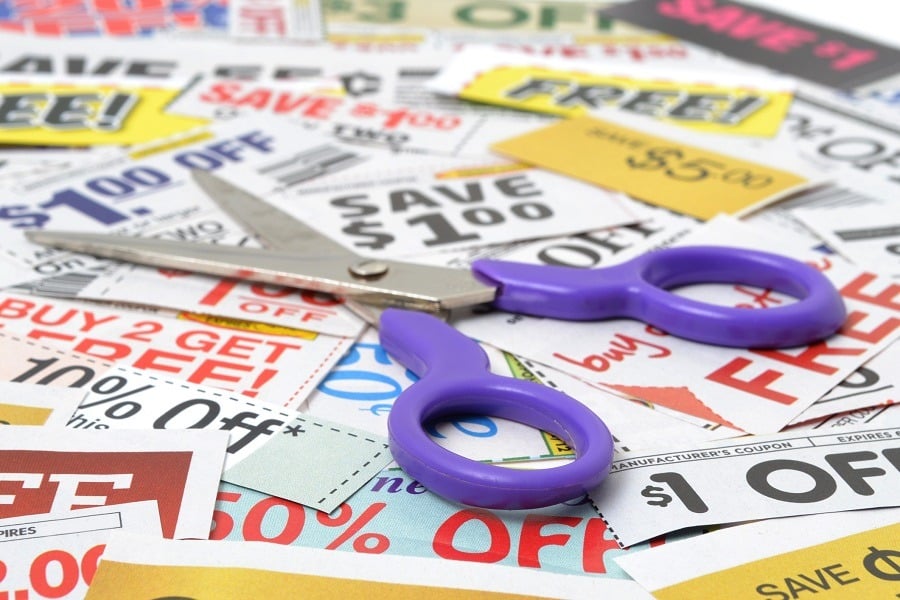
Coupons | Kreinick/iStock/Getty Images
The key here is to make sure you really look at those coupons from the newspaper inserts as closely as possible. Those cutouts are meant to entice you to buy things, not to save you money. If you don’t read the fine print, you’ll end up spending way more instead of getting a good deal and saving.
14. Your groceries could be from a store that failed inspection

Grocery store | Scott Olson/Getty Images
As terrifying as it sounds, it’s true. Grocery stores can stay open even after they’ve failed a health inspection. “While grocery stores do get inspected, they’re under no obligation to close down and clean things up after they fail, largely because health departments are short-staffed and are too focused on restaurants,” The Daily Meal explains
15. Check-out lines are skinny for a reason

Grocery store | Scott Olson/Getty Images
Really, the check-out line is just full of strategies to cost you more money, aren’t they? According to Scoop Whoop, check-out lanes are skinny to discourage shoppers from returning items in their cart they may decide at the last minute they don’t really need. So not only are the carts bigger to make you buy more, but the lanes are skinny so you can’t think better of your grocery purchase!
Check out The Cheat Sheet on Facebook!
Source: Read Full Article


